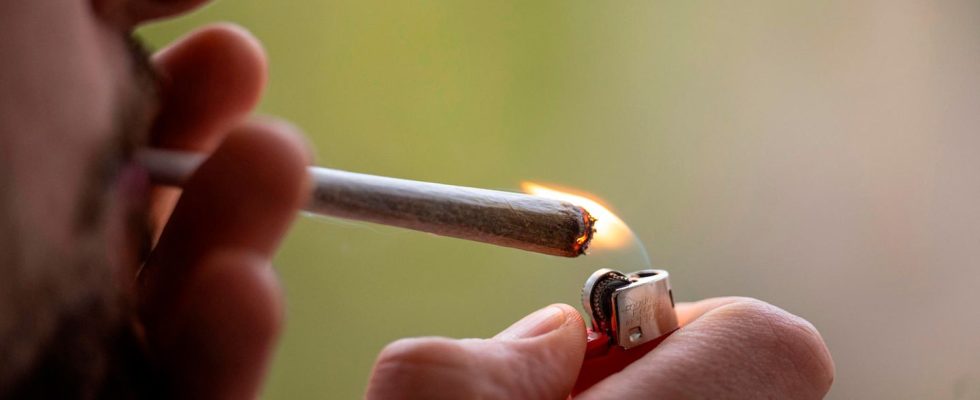Europol data
Cannabis is the most common drug in Europe
It is uncertain whether cannabis legalization will curb illegal drug trafficking
© Hannes P. Albert / DPA
According to Europol, illegal cannabis businesses flush 12.1 billion euros into the coffers of organized crime. The Association of Criminal Investigators believes: Legalization is not a means of combating criminal networks.
Cannabis makes up the largest part of the European drug trade, according to a report by the European police agency Europol and the European Monitoring Center for Drugs and Drug Addiction (EMCDDA). star and RTL is available in advance. The market value of the illegal cannabis trade was 12.1 billion euros in 2023. This means that cannabis has a 39 percent share of the European drug market.
Cannabis therefore has a larger share of the European drug market than cocaine, which, with a market value of 11.6 billion euros, accounts for 37 percent.
Cocaine from Panama, Colombia and Ecuador reaches Europe via European ports. However, not only finished cocaine but also its components are now being smuggled into Europe. The final processing steps take place in the EU. The increased availability of the cocaine base could also lead to a greater relevance of other cocaine products such as crack, fear Europol and EMDCCA. The amount of cocaine confiscated has been increasing since 2017 and the high availability is unprecedented.
“Drug trafficking dominates organized crime”
In contrast, authorities expect heroin availability to be lower in Europe. Available data suggests that the drug ban announced by the Taliban in April 2022 has been implemented. Accordingly, in Afghanistan – the largest exporter of heroin – the cultivation of opium poppies and the production of heroin fell sharply last year. However, there is no reason for relief for the responsible authorities: it is expected that the shortage will be made up for by other drugs, including synthetic opioids.
legalization
Cannabis worldwide: How other countries deal with the drug
“The illegal drug trade continues to dominate serious and organized crime in the European Union” as “part of a complex global criminal enterprise, with smugglers creating a fluid network in cross-border cooperation,” says the report from Europol and the European Union Observatory for Drugs and Drug Addiction.
The partial legalization of cannabis decided in the Bundestag was also intended to dry up a source of income for criminal networks. However, the Association of German Criminal Investigators (BDK) does not believe that this strategy will be successful. “It is completely naive to think that we will achieve greater success in drying up the black market. Nobody is as creative as organized crime in opening up new sales channels. It is to be expected that the illegal trade will also focus on young people,” says Dirk Peglow, federal chairman of the BDK.

